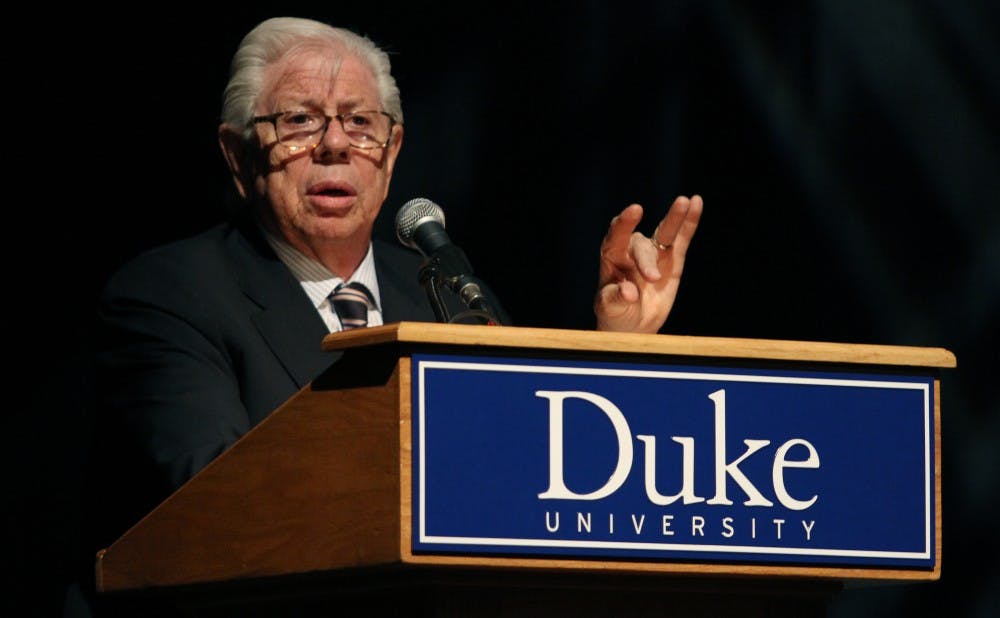Journalist Carl Bernstein urged students to undo the recent breakdown of political culture in Page Auditorium Friday.
Bernstein rose to fame after he and partner Bob Woodward broke news of the Watergate break-in and cover-up in The Washington Post, leading to President Richard Nixon’s resignation in 1974. Bernstein compared the political climate of the '70s to that surrounding the current government, noting that the government is not working now in the manner it should. He added that today’s journalists should seek out the truth instead of catering to political ideologies and personal beliefs.
“We need to pursue the best obtainable version of the truth,” Bernstein said. “The opposite is too often the case—creating ideological and partisan ammunition.”
The current culture relies too heavily on consuming media that is tailored to particular political beliefs, Bernstein noted. He cited the Internet and certain television networks as proponents of this manner of journalism.
“We need to look at ourselves as citizens,” Bernstein said. “The hunger for ideological answers is exponentially greater than it was before.”
Bernstein also addressed the meaning of truth in the media and methods of sorting between facts and myth, noting that the media will often produce “manufactured controversy,” which he defined as containing information that does not illuminate or present the truth.
“Facts by themselves without context are not truths,” Bernstein said.
Although the majority of his speech was a discussion of broad topics, Bernstein did mention the current presidential administration, focusing specifically on the misleading public opinion of President Barack Obama.
“His accomplishments are better than what most think, but his view as a disappointing president is understandable,” Bernstein said.
Bernstein stressed, however, that Obama’s ability to steer the national conversation so intensely toward economic equality has been impressive, especially as an incumbent president.
Although he was not critical of Obama’s presidency in particular, Bernstein said that he has noticed a breakdown in politics that has veered toward political and ideological warfare. He cited Obama’s inauguration as an example, noting that a number of prominent Republicans were reported to have gathered together during the ceremony to discuss how best to “ensure Obama’s presidency does not succeed.”
Freshman Harrison Ferlauto asked Bernstein about how coverage of current political scandals differed from Bernstein and Woodward’s own coverage of Watergate. Ferlauto said media portrayals of the Benghazi and Internal Revenue Service scandals have not been as thorough and illuminating as they should have been and posed the question to Bernstein that there may have been cover-ups within prominent media organizations.
Bernstein countered that it was absurd to deny the thousands of hours reporters have devoted to covering the Benghazi scandal and said he disagreed with Ferlauto’s opinion.
“You may not like what answers have come up so far…but there is no evidence of this being a criminal presidency,” Bernstein said.
He added that journalism is not a perfect art and often reporters cannot find the answer to the questions they are researching.
Freshman Gopi Neppala, who also attended the event, noted that he was impressed by the frank and direct nature of Bernstein’s talk.
“It was really fascinating to hear his view,” Neppala said.
Get The Chronicle straight to your inbox
Signup for our weekly newsletter. Cancel at any time.

